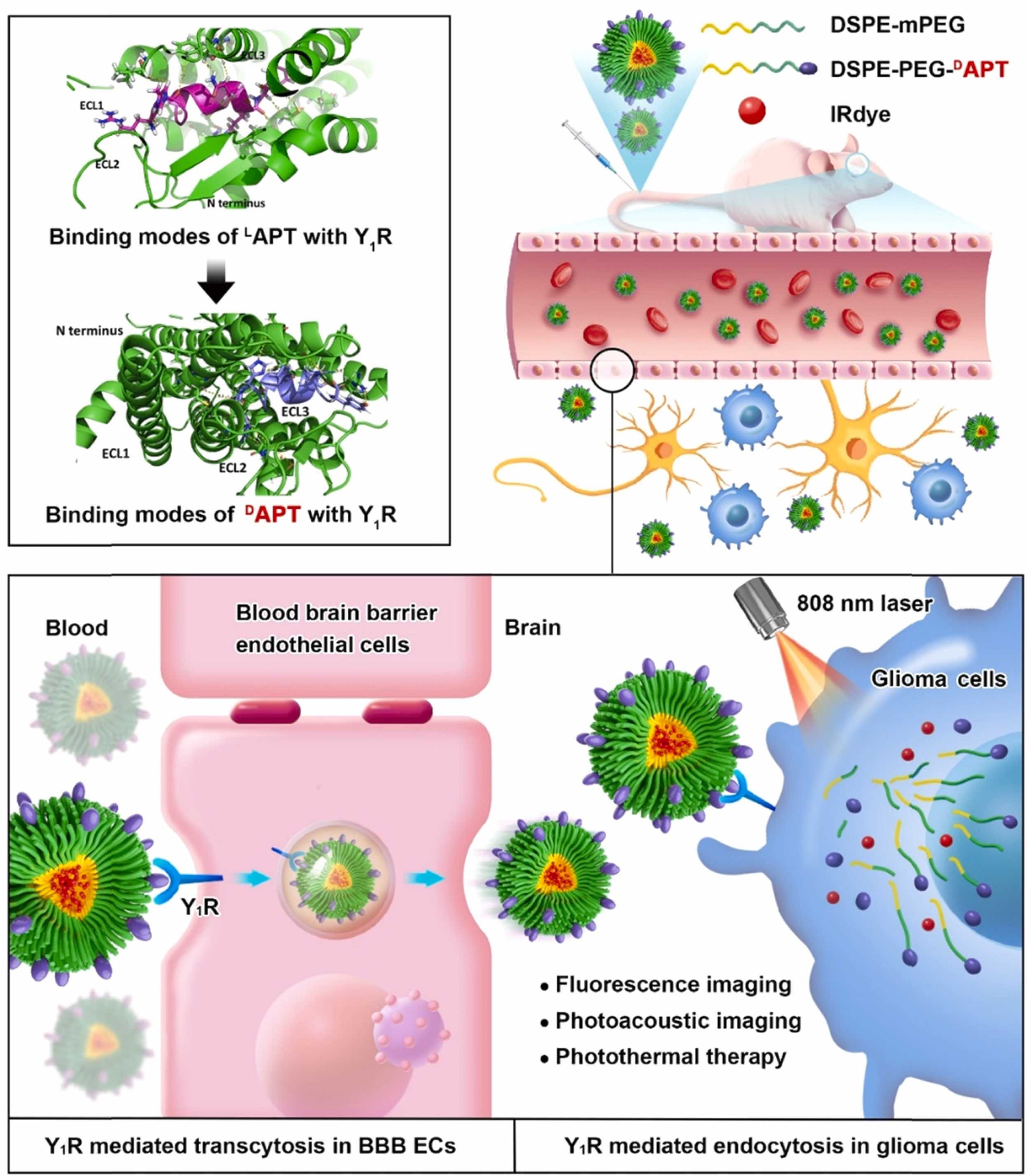A research group led by Prof. WU Aiguo at the Ningbo Institute of Materials Technology and Engineering (NIMTE) of the Chinese Academy of Sciences (CAS), proposed a D-peptide ligand of neuropeptide Y receptor Y1, which can serve as nanocarriers to facilitate the traversal of the blood brain barrier (BBB) and thus targets gliomas efficiently, in cooperation with Prof. Dan Larhammar’s group at Uppsala University. The research work was published in NanoToday.
Tumor is one of the most serious diseases posting threats to human life and health. How to achieve accurate diagnosis and treatment of tumor has become an important scientific issue of common concern in multidisciplinary fields such as biology and materials science.
BBB restricts the entry of drugs into the brain tissue, hindering the effective diagnosis and treatment of brain tumors, such as gliomas.
Based on the structure-guided design in the lab, researchers at NIMTE developed a D-peptide ligand of Y1 receptor, D[Asn28, Pro30, Trp32]-NPY(25-36)( DAPT).
Experimental and computational validation results indicated that when interacting with Y1 receptor, DAPT possesses higher affinity than the corresponding peptide with standard L-amino acids (LAPT), since the quantity of hydrogen bonds for DAPT is 2.5 times higher than LAPT.
In addition, a transcytosis experiment was conducted by virtue of an in vitro BBB model, demonstrating that DAPT modified nanomicelles perform superior efficiency in crossing the BBB comparing with LAPT and can specifically targets gliomas.
According to in vivo studies, DAPT nanomicelles show great potential in improving photothermal therapeutic efficacy and photoacoustic tumor imaging efficiency, when loaded with a near infrared photosensitizer IRDye780.
The study may shed light on the mechanism exploration of the neuropeptide Y crossing the BBB, and facilitate the accurate diagnosis and treatment of gliomas and other central nervous system diseases.
This work was financially supported by the Natural Science Foundation of China (Grant Nos. 81871411, 32011530115, 32025021), the Swedish Foundation for International Cooperation in Research and Higher Education (STINT) (Grant No. CH2019-8305), Science & Technology Bureau of Ningbo City (Grant Nos. 2020Z094, 2021Z072), Chinese Academy of Sciences President’s International Fellowship Initiative (Grant No. 2020DB0009), and Excellent Member of Youth Innovation Promotion Association Foundation of CAS (Grant No. Y2021079).

Fig. The D-peptide ligand of Y1 receptor serves as nanocarrier crossing the blood brain barrier and targets gliomas (Image by NIMTE)
Contact
LI Juan
Ningbo Institute of Materials Technology and Engineering
E-mail: lij@nimte.ac.cn

